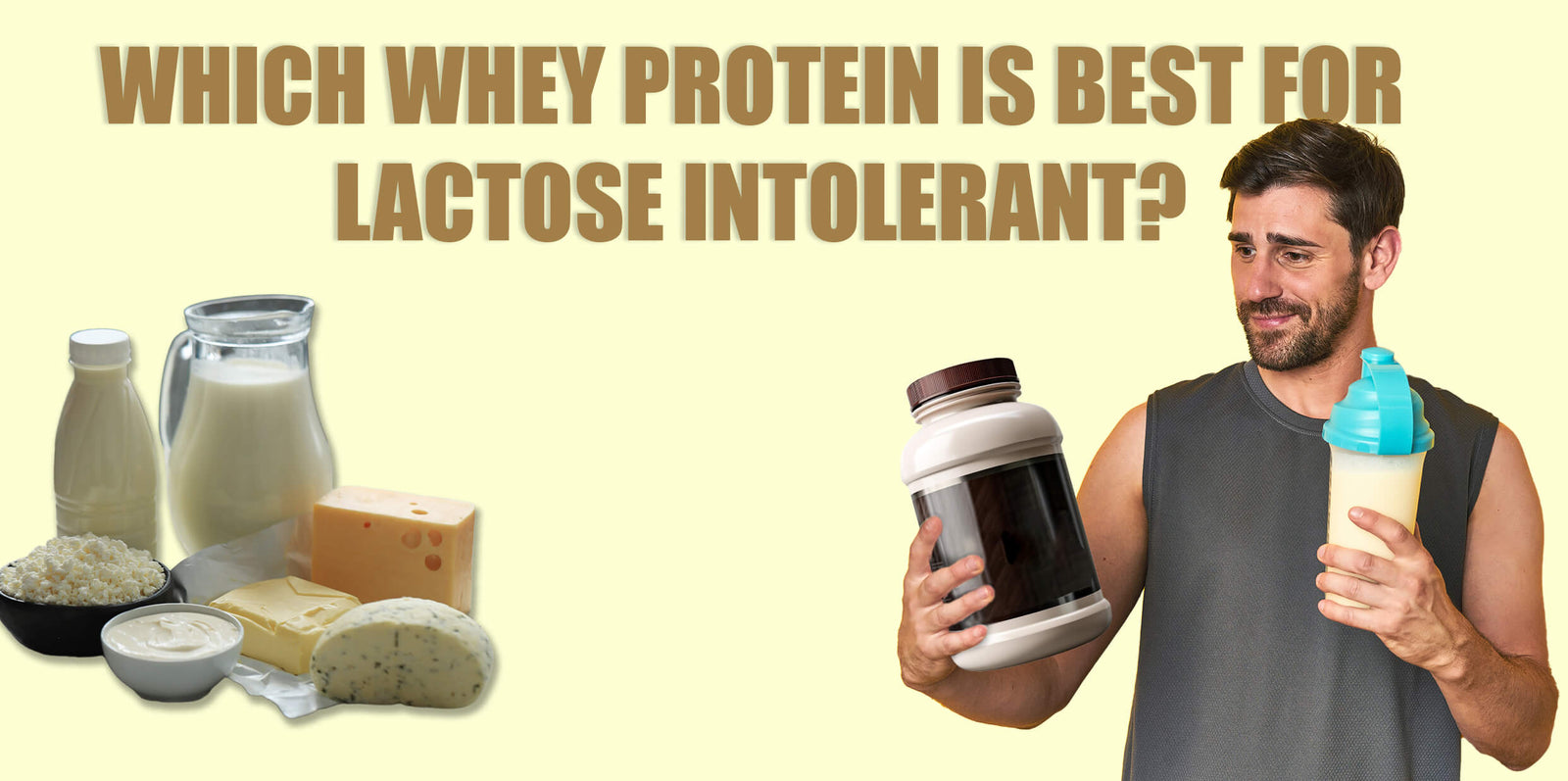Imagine you just finished a great workout, your muscles are craving protein, and you mix up a delicious protein shake—only to end up feeling bloated, gassy, or even rushing to the bathroom. Sounds familiar? You might be Lactose Intolerant, and your protein choice could be the culprit.
Lactose Intolerance affects millions of people worldwide, making dairy-based products hard to digest. But does that mean you have to give up on Whey Protein Powder? Not at all! The good news is that Whey Isolate might be the perfect solution for you. Let’s dive into why.
What Is Whey Isolate?
Whey Protein Powder comes in different forms, primarily Whey Concentrate and Whey Isolate. While both are derived from milk, the key difference lies in their processing.
- Whey Concentrate contains more fats, carbs, and lactose.
- Whey Isolate undergoes further filtration to remove almost all lactose, fats, and carbs, making it over 90% pure protein.
This extra step in processing makes Whey Protein Isolate an excellent choice for lactose-intolerant individuals who want to get the benefits of Whey Protein without digestive distress.
Why Lactose-Intolerant People Should Choose Whey Isolate
1. Almost Zero Lactose
Unlike Whey Concentrate, Whey Isolate is highly refined, leaving minimal to no lactose in the final product. This means most people with Lactose Intolerance can consume it without experiencing bloating, stomach cramps, or discomfort. However, take a scoop test and consult your doctor before.
2. Fast Absorption & Easy Digestion
Because it contains very little fat and carbs, Whey Protein Isolate gets absorbed quickly, making it ideal for post-workout recovery. Whether you’re a gym-goer or just someone looking to stay fit, your muscles need fast protein, and Whey Isolate delivers it efficiently.
3. High Protein, Low Calories
For those watching their calorie intake, Whey Isolate is a cleaner, leaner option. With over 90% protein per scoop, you’re fueling your body with pure muscle-building nutrients without unnecessary sugars or fats.
4. Supports Muscle Recovery & Growth
Protein plays a crucial role in repairing and building muscles after exercise. Whey Isolate provides all the essential amino acids needed for this process, ensuring faster recovery and better results from your workouts.
5. Ideal for Gym-Goers & Non-Gym-Goers Alike
- For Gym Enthusiasts: Whey Isolate provides rapid muscle recovery, helping you build lean muscle and reduce soreness.
- For Non-Gym-Goers: If you’re just trying to stay healthy, adding Whey Isolate to your diet can help you meet daily protein needs, improve metabolism, and support weight management.
Whey Isolate vs. Plant-Based Protein: Which One Should You Choose?
If you're Lactose Intolerant, you might be considering Plant-Based Protein powders as an alternative. While they can be a good option, Whey Protein Isolate often outperforms Plant-Based Proteins in several ways:
- Better Amino Acid Profile: Whey Isolate contains all nine essential amino acids, while some Plant-Based Proteins may lack a few.
- Faster Absorption: Whey Isolate is absorbed more quickly, making it the superior choice for post-workout recovery.
- Higher Protein Content: Many Plant-Based Proteins contain more carbs and fibre, making Whey Isolate the purer protein option.
If you have dairy allergies (not just Lactose Intolerance), a Plant-Based Protein might be better suited for you. Otherwise, Whey Isolate remains the best choice for muscle growth, fat loss, and overall health.
How to Incorporate Whey Isolate into Your Diet
- Post-Workout Shake: Blend it with water or almond milk for quick muscle recovery.
- Smoothie Booster: Add it to fruit smoothies for a protein-packed meal.
- Protein Pancakes: Mix it into pancake batter for a nutritious breakfast.
- Healthy Snacks: Stir it into Greek yoghurt or oatmeal for an extra protein punch.
- Homemade Protein Bars: Combine with nuts and seeds to make high-protein energy bars.
Common Myths About Whey Isolate & Lactose Intolerance
Myth 1: All Whey Protein Causes Digestive Issues
- Not true! Whey Concentrate contains more lactose, which may cause digestive distress, but Whey Isolate has almost none, making it easier to digest.
Myth 2: Whey Isolate Is Only for Bodybuilders
-
Whey Isolate isn’t just for bodybuilders. It’s great for anyone looking to improve their protein intake, whether they exercise regularly or simply want to maintain a healthy lifestyle.
Myth 3: You Don’t Need Protein If You Don’t Work Out
- Protein isn’t just for muscle building—it’s essential for immune function, metabolism, and overall body repair. Even if you’re not lifting weights, you still need adequate protein daily.
Conclusion: The Best Protein Choice for Lactose-Intolerant Individuals
If you’ve been avoiding Whey Protein Powder because of Lactose Intolerance, it’s time to reconsider. Whey Isolate provides all the muscle-building benefits of protein without digestive issues. Whether you’re an athlete, a fitness enthusiast, or just someone aiming for a healthier lifestyle, Whey Isolate is a powerful, clean, and efficient protein choice.
By making the switch, you can enjoy all the benefits of Whey Protein without the side effects, ensuring that you stay on track with your fitness and health goals. Don’t let Lactose Intolerance hold you back from achieving your best self—choose Whey Protein Isolate and fuel your body the right way!


